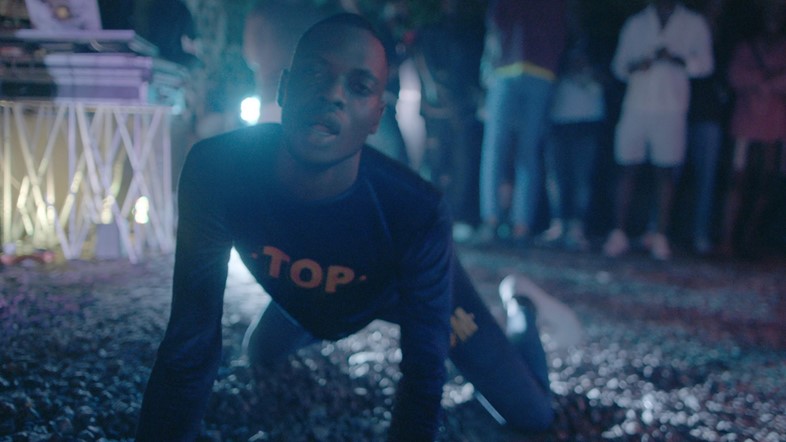Filmmakers Giselle Bailey and Nneka Onuorah tell Vincent Desmond about their HBO Original documentary The Legend of the Underground and the impact they hope it has on Nigeria, where LGBTQ+ still face prejudice and discrimination
“Fear and hope. Both in parallel, both equally.” That’s how filmmaker Giselle Bailey says she felt after wrapping The Legend of the Underground, the recent HBO Original documentary, which shines a light on the struggle against rampant prejudice and discrimination in Nigeria today. “There’s a tremendous amount of fear when you do something that you realise could have a huge impact. And I think there’s a lot of fear about how that is going to affect everyone who’s part of the film. Part of the movement? Or the country at large and our own lives? It’s a huge moment about all potential transformations. And then, there’s a huge swell of hope that there will be an impact and it will be a positive one.”
In Nigeria, LGBTQ+ film and TV hasn’t quite blown up in the way it has in other parts of the world. We do not have Pose, Call Me By Your Name or even older things like Jennie Livingston’s cult 1990 documentary Paris Is Burning. Here, attempts by filmmakers to change this have often been met with stiff opposition – be that from the homophobic public or even the government itself. All this makes The Legend of the Underground all the more essential and groundbreaking. Created by Giselle Bailey and Nneka Onuorah, the documentary explores the underground world of nonconformism in Nigeria, the country’s burgeoning ballroom scene and how it’s changing and evolving as a result of the internet and social media.

For Bailey and Onuorah, the decision to make the documentary was one that almost made itself. “When we first started working together, we were working on projects about the ballroom scene in New York,” Bailey tells AnOther. “Today, there’s Pose, Legendary and other projects but at the time, other than Paris Is Burning, people weren’t seeing or talking about that movement. There was so much talent from that movement that was shaping pop culture, but not getting any attention for their talents. So I wanted to tell that story. And as someone who immigrated to the US with my family – my father is Jamaican – I also wanted to tell that story. So I feel like we also wanted to build a bridge and connection for ourselves, as well as between African Americans and the different cultures within Africa. And this felt like a really interesting way to approach that.”
The documentary follows two close-knit groups, starting in New York with a man named Michael Ighodaro, who left Nigeria after a homophobic attack almost cost him an arm and who now advocates for the community he left in Nigeria; back in Lagos, we meet another group of young queer Nigerians. Chiefly among them is James Brown, a young man who had gone viral for being arrested alongside 56 other men on suspicion of being gay. A clip featuring Brown proclaiming to the police and press “they didn’t catch me,” referring to the fact that neither Brown nor any of the men captured had been caught doing anything contrary to the law. This clip found its way onto 50 Cent’s Instagram and was how both Onuorah and Bailey first heard about Brown. Today, he is one of Nigeria’s most recognisable internet personalities, with more than 400,000 followers on Instagram. Brown’s story is an example of how a boldness in nonconformist youth in Nigeria prevents their voices from shaking when faced with a system that wants them oppressed. It also illustrates how important and integral the internet and social media is to queer Nigerians today. All these are things The Legend of the Underground does a stellar job of capturing.
Ultimately, both filmmakers hope that the documentary shifts the narrative about queerness and queer people in Nigeria, as well as serving as a catalyst for even greater change for Nigeria’s LGBTQ+ community. “I hope that it becomes a tool to challenge the Same-Sex Marriage Prohibition Act,” says Onuorah on her hopes for the film. “I hope that it shifts the way people within Nigeria, but also across the world, think about the queer communities within their own countries.”
“I hope that the legacy of this film is that it shows that [queer people in Nigeria] are bold, and confident,” Bailey says of her hopes for it. “And that our stories don’t always have to be negative and sad. And that there should be no more association with this evilness and Sodom and Gomorrah and all that other stuff that Nigerians link queerness with. I think that now there should be visibility of the beauty, the boldness, the fun, the fashion, and the flyness. And I think that people should use these queer communities as an example of what freedom could look like.”
The Legend of the Underground is out now via HBO.
